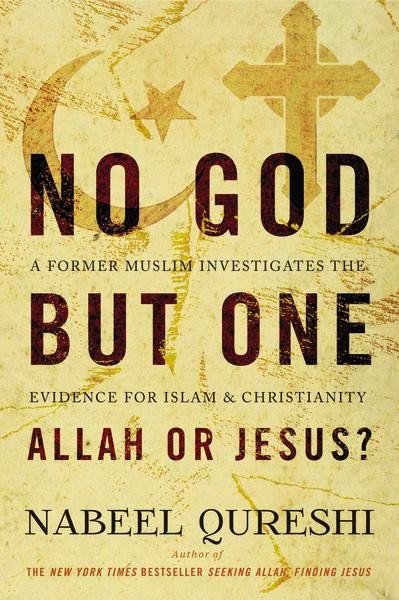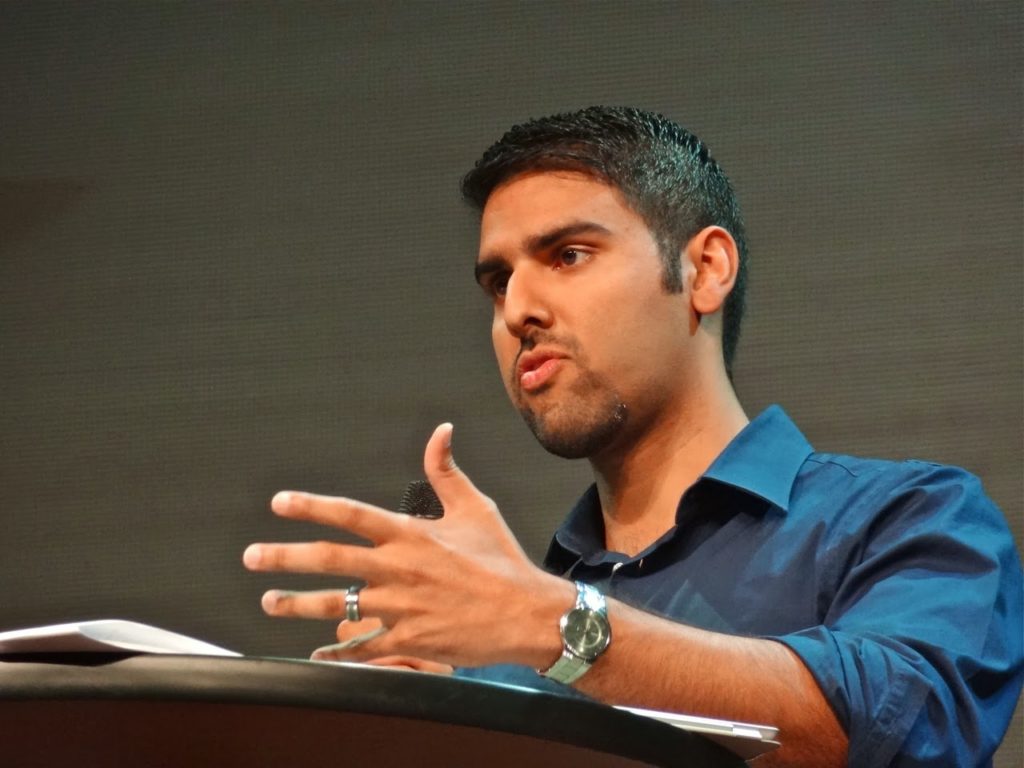No God but One: Allah or Jesus, by Nabeel Qureshi. Grand Rapids: Zondervan, 2016. 320 pages.
Most Muslims and Christians know their religions trace their origins back to the same Abrahamic roots but diverge widely in both theology and practice. However, beyond these basic facts, how many adherents of either faith have examined the beliefs of the opposite religion in detail?

Nabeel Qureshi seeks to remedy this dilemma in his latest book, No God but One: Allah or Jesus. Published last summer, the book serves as an essential resource to at least two groups: Christians who desire to share their faith with Muslims and Muslims interested in investigating the claims of Christianity.
“While sharing this message [the Gospel], I often come across two kinds of people: Christians who enjoy criticizing Islam, and Muslims who want to argue but do not want to learn,” Qureshi writes. “I am not writing this book for either of them.” Instead, he intended for No God but One to reach those interested in discerning the truth about Christianity and Islam.
Qureshi deftly weaves together personal narrative and powerful real-life stories with apologetics and historical evidence to examine the case for Islam versus Christianity. Based on the evidence, he shows why an objective observer would choose Christianity over Islam.
Probably no other author qualifies better than Qureshi to write such a book. Growing up in a Muslim household, he converted from Islam to Christianity at 22-years-old after studying the claims of both religions in depth with a Christian friend during college. Qureshi detailed his conversion story in his first book, Seeking Allah, Finding Jesus: A Devout Muslim Encounters Christianity, published by Zondervan in 2014.
Now in his early thirties, he has since interacted with countless Muslims about their faith and debated top Muslim apologists on behalf of Ravi Zacharias International Ministries. He thus knows firsthand how to make a convincing case for Christianity to Muslims, and how to answer Muslims’ most common objections to Christianity.
“For me, and millions of others like me, the subject of these pages is far more than information,” Qureshi writes. “What I share is a summary of fifteen years of research that wrenched my heart and transformed my life.”
Qureshi also brings formidable academic credentials to the topic. His degrees include a Master’s in Christian apologetics from Biola University, a Master’s in religion from Duke University, an MPhil in Judaism in Christianity from Oxford, and he is currently working on his PhD in New Testament studies at Oxford. (If all that wasn’t enough, he also graduated from medical school before deciding to pursue his extensive studies in religion!)
With years of study and experience at his disposal, Qureshi argues that while Islam and Christianity share some major similarities as Abrahamic monotheistic faiths, their differences set them fundamentally at odds. He acknowledges the two faiths closely relate “on the broader religious spectrum,” both even agreeing that Jesus should be venerated. But Qureshi appeals to an analogy from biology to illustrate the importance of the religions’ doctrinal differences: “Humans and chimpanzees share 95 percent of their DNA, but the remaining 5 percent is incredibly important!”
Qureshi spends the first half of his book detailing the beliefs of Islam and Christianity. He dedicates several chapters each to contrasting Muhammed versus Jesus, the Quran versus the Bible, and Sharia versus the Gospel. He delves into the weighty discussion of what the two religions believe about the nature of God: Islam insists on Allah’s total oneness (Tawhid) while Christianity affirms the Trinity.
In a bold move, Qureshi also tackles the differences between jihad and the Crusades. (His second book, Answering Jihad: A Better Way Forward, deals with jihad in greater detail.) Fundamentally, he argues that the historic contexts and origins of jihad and the Crusades were diametrically opposed: “The historical Jesus never sanctioned violence and endorsed absolutely nothing like the Crusades, whereas the historical Muhammed engaged in jihad as the greatest deed a Muslim can perform.”
The second half of No God but One compares the irreducible claims of each religion to determine which made the more convincing case. Qureshi pitted the Islamic beliefs about Muhammed as Allah’s prophet and the Quran as inspired truth against the Christian beliefs about the person of Jesus Christ, particularly his life, death, and resurrection.
Examining this evidence had already convinced Qureshi himself of Christianity’s veracity. “After thoroughly investigating the truth claims of Islam and Christianity, even while a Muslim, there was no avoiding the obvious truth: The evidence in favor of Christianity was far, far stronger than the evidence for Islam,” he writes.
Sadly, Qureshi announced via Facebook on August 30 that he had been diagnosed “with advanced stomach cancer,” the same day No God but One was published. He added that “the clinical prognosis is quite grim,” but planned “to pursue healing aggressively,” both through medical care and prayer. He has since undergone chemotherapy, which has produced “remarkable” results in reducing the cancer, although his treatment continues.
May God heal Nabeel completely and preserve his unique Christian witness for years to come! And may He continue to use No God but One as a powerful means for reaching Muslims with the message of Jesus Christ.





Comment by apriluser on January 14, 2017 at 12:21 am
I’ve watched YouTube presentations and debates with Nabeel. He’s amazing! So sorry to hear about the cancer. Lord in your mercy, hear our prayer.